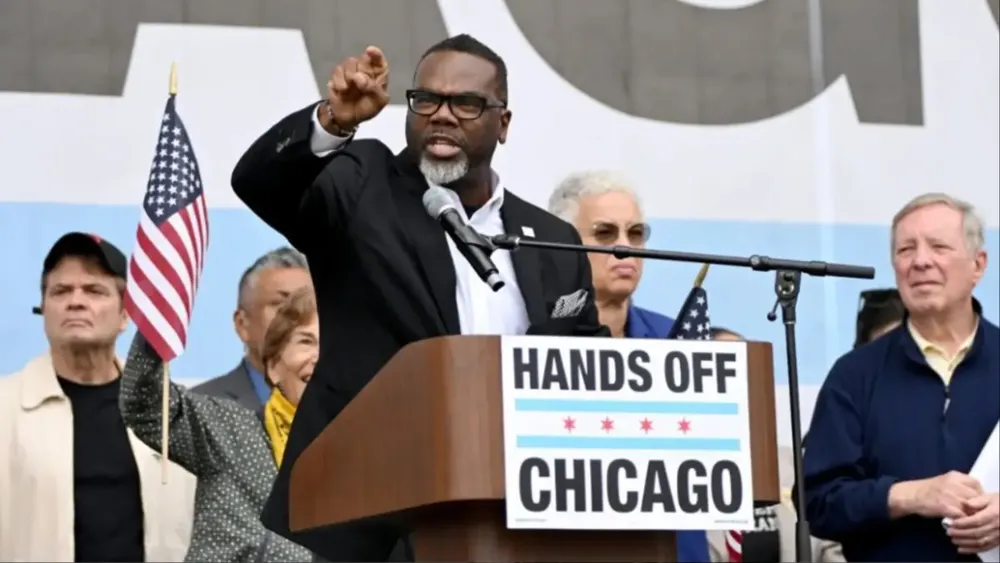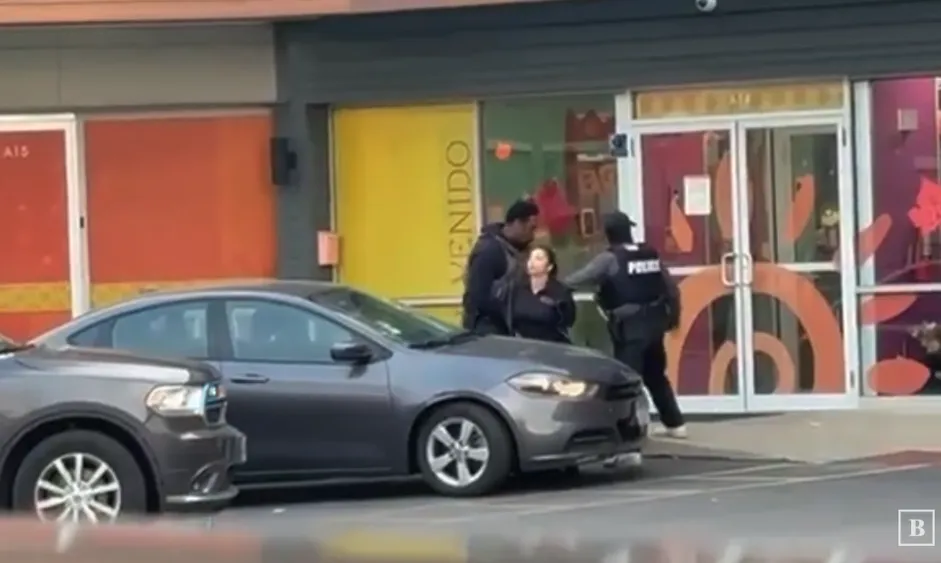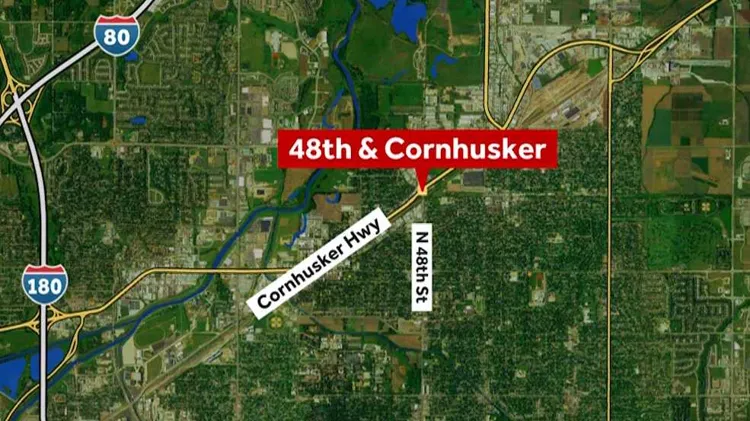‘Shame on You!’: As Chicago Moves Toward Reparations, Some Council Members Refuse to Apologize for Slavery, and Black Officials Are Furious

Months after the city of Chicago embarked on an ambitious project to determine reparations for slavery, a resolution offering Black residents an apology for enslaving their ancestors and perpetuating systemic racism won overwhelming approval in the City Council. But the resistance of four council members to the measure has outraged some Black members. “Shame on you!” shouted Alderman Lamont Robinson, after Alds. Raymond Lopez, Nick Sposato, Anthony Napolitano and James Gardiner refused to endorse the resolution he sponsored, which issued a formal apology from the City Council “to the Black citizens of Chicago for the historical injustices of slavery, segregation, systemic racism and the policies that have perpetuated racial inequality.” “You have to be able to share with your constituents, your Black constituents — in all damn 50 wards — why you would say no to this resolution? Shame on you!” Robinson said, reported WBEZ. Chicago Mayor Brandon Johnson at his city's 'No Kings' rally on Oct. 18, 2025. (Photo: The Other 98% Facebook page) The resolution, which had the strong support of Chicago Mayor Brandon Johnson, who issued his own apology for slavery on behalf of the city through an executive order last year, passed 43-4 on Sept. 25. “I was hoping this would be a unanimous one — of all the things we can unanimously support, “ said Ald. Maria Hadden. “This is a surprising, shocking, appalling piece.” Sposato, who is white and a supporter of Trump, said he would not take responsibility for the sins of the past. ‘Who the Hell Does That?’: Trump Digs Into His Jacket Mid-Interview for ‘Proof’ of His Wild Claim — But What He Actually Pulls Out Has the Internet in Shambles “There’s a lot of blame to go around, but certainly not in the city of Chicago, certainly not my family,” Sposato said. “I apologize to absolutely nobody. I want my name off there. I do not want to be associated with this.” Lopez, who represents Chicago’s Southwest Side, said he wouldn’t endorse the resolution because Chicago’s “own economy was not slave-driven.” He noted that the city became a haven for freed men and women escaping Southern slavery, and that half a million people came to Chicago as part of the Great Migration. “If we want to talk about the injustices to the Black community, I want to talk about where we have failed. We don’t have to look that far back.” Chicago Aldermen James Gardiner, Raymond Lopez, Anthony Napolitano and Nick Sposato voted against a resolution apologizing to Black residents for slavery, segregation and systemic racism on Sept. 25, 2025. (Photo: Alderman Anthony Napolitano Facebook Profile) Hadden acknowledged that the city “didn’t directly deal in enslaved people,” but she pointed out that “the money that built this city and controlled the power did." The resolution notes that after Illinois was deemed a free state in 1818, state laws in place through the Civil War “subjected the free Black residents to oppressive restrictions, including the denial of voting rights … and prohibitions against gathering in groups, bearing arms or serving in the militia.” Black Chicagoans continued to face racial discrimination following slavery’s abolition through forced labor, segregation, redlining, housing discrimination and other systemic inequities “which persist today,” the resolution says, acknowledging “the ongoing detrimental impacts of slavery and segregation are evident in present-day disparities in wealth, health outcomes, education and access to economic opportunity.” Alderman Napolitano posted online that he voted no on the resolution “not because I deny the evils of slavery, because no human could deny that, but because this apology rings hollow coming from an administration that has turned its back on the very communities it claims to care about." “Let’s be honest: what good is an ‘apology’ when the same city government is actively diverting hundreds of millions of dollars away from our own neighborhoods, many of them historically African-American, and instead prioritizing illegal immigrants over lifelong Chicagoans?” Napolitano continued, noting that “over $600 million has been spent on housing, food, and other services for illegal migrants in the past few years." "That money could have, and should have been invested in rebuilding our communities, strengthening public safety, and supporting local schools and small businesses. Instead, our neighborhoods are being left behind while resources are handed out to those who haven’t contributed to the city.” Last year, Mayor Johnson defended before Congress his decision to welcome tens of thousands of migrants, many of whom were bused and flown to Chicago by Republican governors in Texas, Florida and other southern states, at a cost of $638 million in vendor contracts supporting the new arrivals since 2022, according to an ABC7 investigation. Napolitano has in recent months openly supported Trump’s immigration crackdown in Chicago and the aggressive tactics used by federal Immigration and Customs Enforcement (ICE) agents, in contrast to Mayor Johnson’s strong stance and legal pushback against the federal enforcement actions. Meanwhile, a reparations task force formed by Johnson and made up of 40 Chicago residents and representatives of community organizations began meeting last June and started working on a comprehensive study aimed at defining what Black reparations mean in Chicago, identifying key areas of harm for redress, and helping to develop recommendations and remedies for reparative actions. “We are giving the community control to be able to direct how government should show up” and respond to “decades of oppression and historic disinvestment,” the mayor said in July. The task force, whose members are paid, is funded by a $500,000 appropriation from the 2024 Chicago city budget, marking the first time city officials set aside taxpayer dollars to do more than just promise to talk about what Chicago owes its Black residents as a result of the legacy of slavery and segregation, WTTW reported. According to the executive order that created it, the reparations task force members will hold public hearings and engage the community to gather testimonials and personal narratives of Black people with lived experience of discrimination and inequity and must produce a report by June 2026 that includes recommendations for remedies and restitution for “past injustices and present harm.” Chicago’s Chief Equity Officer Carla Kupe said the city is looking at how a handful of other U.S. cities are approaching reparations, including Los Angeles and nearby Evanston, Illinois, which in 2019 set aside $10 million in revenue from cannabis sales to help Black residents buy homes through mortgage assistance programs and fund home improvements as part of its reparations effort. As of June $6.2 million had been distributed in $25,000 payments to qualifying Black residents, according to the Evanston Roundtable. But Evanston’s program is now facing a legal challenge supported by conservative activist group Judicial Watch that threatens its ability to continue. The plaintiffs, who are white residents, claim the initiative is unconstitutional because qualification for the program funded by taxpayers is based on an applicant’s race. If that lawsuit is successful, it could complicate Chicago’s reparations efforts. Last spring, Kupe said the Trump administration’s actions to strike down DEI programs in governmental and business sectors across America made the city “if anything, more committed” to its reparations effort. “Because at the end of the day, whatever you call it — DEI, equity — it’s all about dignity,” she said. “Mayor Johnson has said he won’t budge. This administration is committed to its values and one of those is to take care of and protect our community, the people that live and learn and work here. … We will stay committed to seeing this through.” Ever defiant, Johnson continued to push back against federal interference in his city’s and all U.S. citizens’ lives last weekend, urging Americans to stage a general labor strike during his fiery speech at Chicago’s No Kings rally on Saturday. Calling on Black, brown, white, Asian and gay people and immigrants to take a stand against “tyranny,” the “ultra-rich” and corporate greed, Johnson said, “We are going to make them pay their fair share in taxes to fund our schools, to fund jobs, to fund health care, to fund transportation. … Are you ready to take it to the courts and to the streets?”

